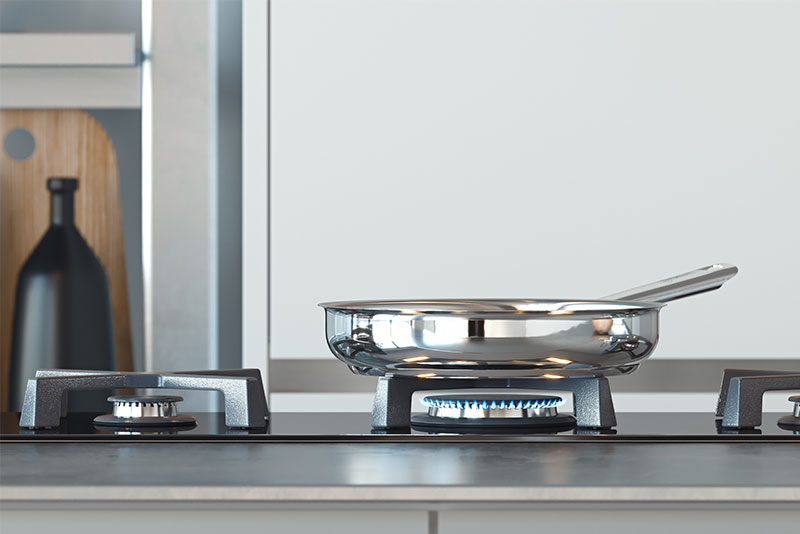
Over half of fires within the home start in the kitchen and many of these will be caused by grease or cooking oil, which becomes too hot. It can take less than 30 seconds for smoking oil to catch fire, so you should never leave a pan unattended.
The best way to stop a cooking oil fire is by smothering it. Covering the pan will cause the fire to consume what oxygen is left, allowing the fire to dwindle.
Top safety tips
- Never use water on a grease fire. Pouring water onto a grease fire might be your first instinct. However, this will make things a lot worse as water and oil don’t mix. Water creates an explosion of steam as it hits the flaming oil, which then spreads fiery droplets of oil throughout the kitchen.
- Turn off the heat. Before doing anything, turn off the heat and if you can safely do so, cover the pan to smother the fire preferably with a fire blanket.
- Do not try to move the pan from the stove. The grease could splash onto you or the kitchen surfaces.
- Do not fan the fire with a dry or wet cloth. This can cause the grease to splash or the fire to spread onto other surfaces.
- Do not use flour on a grease fire
How to prevent a cooking oil fire:
- Stay in the kitchen and keep an eye on the deep fryer/pan
- Slowly heat the oil to your desired temperature
- Turn it off if you suspect the oil is getting too hot
- Place the food in the cooking oil carefully to prevent hot grease splatter
The Firechief range includes high-performance fire extinguishers, fire blankets, first aid kits, lithium-ion fire extinguishers for your home and leisure time. For more information, call us on +44 (0)330 999 0019 or email sales@firechiefglobal.com.
The information contained within this blog is provided solely for general informational and educational purposes and is not intended as a substitute for professional advice. Before taking any actions based upon this information, we advise the reader to consult any and all relevant statutory or regulatory guidance and where felt necessary to consult a qualified fire or industry regulation professional. The use or reliance on any information contained herein is solely at the reader’s risk.

